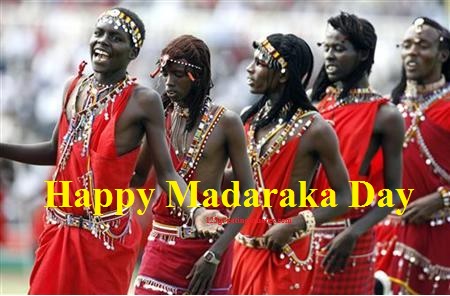Contents
Kenya Madaraka Day
June 1
Madaraka Day, 1 June, commemorates the day that Kenya attained internal self-rule in 1963, preceding full independence from the United Kingdom on 12 December 1963. Madaraka is the first national holiday of Kenya, and Kenyan’s gather together for celebration, food, song and dance. Some people plant trees in honour of the day, and everyone remembers the heroes who fought and died for the country’s independence.
Kenya Public Holidays
siku Madaraka
June 1 is a public holiday in Kenya. The day is set aside to commemorate the day that Kenya became a self-ruling nation. On this day, the main event takes place at Nyayo Stadium in Nairobi. The President addresses the nation, and the uniformed military, singers, and traditional dancers from around the country provide entertainment for the crowds.
The day is full of festive activities, including family picnics and games in the public parks. Many people take this opportunity to go back to their hometowns for the occasion, and often a big meal of goat or chicken is prepared for the special day. Retail business in Nairobi is slower on this day, while public transportation to up-country areas is heavier than normal.
Kenya Madaraka Day History
The Republic of Kenya, on the eastern coast of Africa, is surrounded by Somalia, Ethiopia, Sudan, Uganda, and Tanzania. In the mid-1800s, British settlers arrived in East Africa. They eventually established the East African Protectorate in 1895, which promoted European settlement in some of the most fertile parts of Kenya, forcing the native Kenyans from their land. In some areas, especially in the arid northern half of the country, there were few British settlers.
Even before Kenya was officially made a British colony in 1920, European settlers were allowed to participate in government. However, Africans were prohibited from direct political participation until 1944, at which time a few appointed (but not elected) African representatives were allowed to sit in the legislature.
Between 1952 and 1959, Kenyans began to rebel against British colonial rule and its land policies. This rebellion took place almost exclusively in the highlands of central Kenya, which were home to the Kikuyu people. Detention camps and restricted villages were established to contain the Kikuyu insurgents. Tens of thousands of Kikuyu died in these areas and in the fighting, compared to approximately 650 British deaths.
Following the rebellions, Africans were given many more opportunities to participate in politics. The first elections to elect Africans to the Legislative Council took place in 1957. On June 1, 1963, Kenya became a self-governing country when Jomo Kenyatta, an ethnic Kikuyu and head of the Kenya African National Union (KANU), became the first prime minister. On December 12, 1963, Kenya became an independent nation. One year later, on December 12, 1964, Kenya became a republic, with Kenyatta serving as the president. Kenyans honor their first president by celebrating Kenyatta Day every year on October 20.
June 1 is a public holiday in Kenya. The day is set aside to commemorate the day that Kenya became a self-ruling nation. On this day, the main event takes place at Nyayo Stadium in Nairobi. The President addresses the nation, and the uniformed military, singers, and traditional dancers from around the country provide entertainment for the crowds.
The day is full of festive activities, including family picnics and games in the public parks. Many people take this opportunity to go back to their hometowns for the occasion, and often a big meal of goat or chicken is prepared for the special day. Retail business in Nairobi is slower on this day, while public transportation to up-country areas is heavier than normal.
Facts about Kenya:
In 1963 Kenya was enabled for self-ruling. Kenya became a fully independent country on December 12 of the same year
– Some of the oldest known palaeontological records of the history of mankind on earth have been found in Kenya.
– The most popular sports in Kenya are cricket, track and field, box, soccer, volleyball, rugby, tennis and field hockey.
– The ethnic groups in Kenya include Kikuyu, Luhya, Luo,Kalenjin, Kamba Kisii, Meru and other Africans and non-Africans.
Originally posted 2015-05-28 14:47:11.




